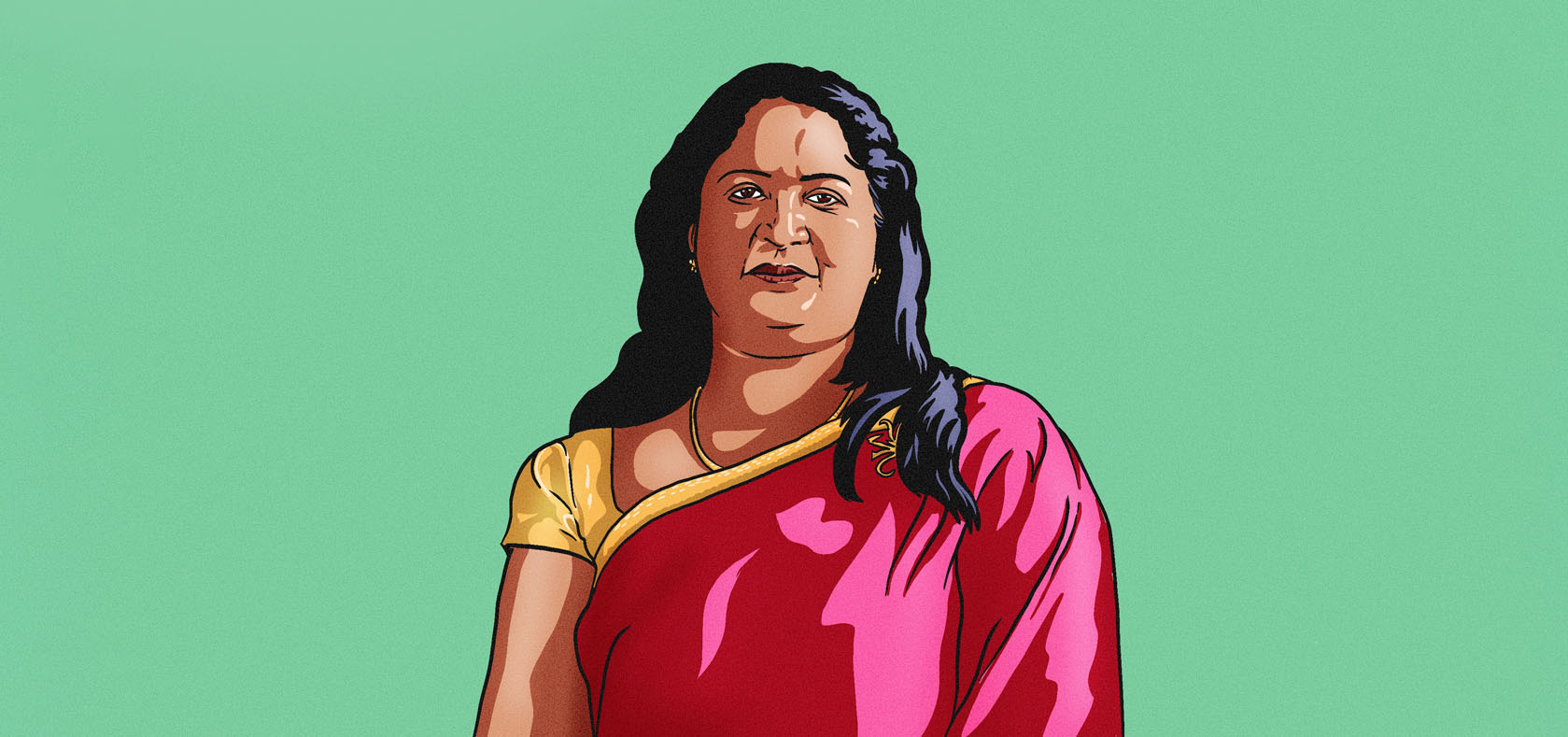In the words of Nirosha Rathnayake: “Challenges faced by women and girls are increasing at an alarming rate”
Nirosha Rathnayake, 48, is a women’s development officer at the District Secretariat of Anuradhapura in Sri Lanka. In October, she attended a series of trainings on women, peace and security conducted by UN Women for more than 130 public sector officials in the Districts of Ampara, Anuradhapura, Colombo and Mannar. The training programmes are part of UN Women’s three-year project titled Implementation of the Women, Peace and Security Agenda in Sri Lanka, funded by the Government of Japan.
Date:
Interviewed by: Veenadara Lakshika Jayakody
Edited by: Rukaiya Aliasgar


Even before the economic crisis, women and girls were facing many problems, but now, we are seeing these issues multiply, especially when it comes to women’s safety and security. The women that come to me… their husbands have often left them alone with their children without any financial support. We have one safehouse built with support from a non-governmental organization for women to fall back on in times of dire need. Recently I visited this safehouse and met a single mother who was 22 years old. She had a one-month-old baby and a one-and-a-half-year-old toddler. Her husband had left her and had no place to go, until the hospital sent her to the safehouse.
There was another girl who was 17 years old. She had stopped her education because she was pregnant. Her family was refusing to take her in because they have two more girls at home. Her parents think that if she comes home, her two sisters will be shamed by villagers.
There are many issues like this here. And the challenges faced by women and girls are increasing at an alarming rate. Yet, measures to protect their rights are not adequately funded.
UN Women’s training programme on women, peace and security taught us how to work together in an emergency and handle such cases, including instances of violence against women and girls. We also learned more about harmful gender norms that perpetuate discrimination and violence against women and girls. This type of knowledge is not only helpful to us, but also to the whole of society. Why? Because in our society, when women have to make decisions about their life, most people think that these decisions should be made by a man. Challenging these norms will help women to better support themselves. Education about gender equality is therefore key to addressing some of these problems.
This should be followed by strengthening institutional capacities and the adoption of national policies such as the National Action Plan on women, peace and security. When a woman goes to make a complaint at the police station about violence or abuse, there should be coordination mechanisms with the police and the Ministry of Women and Child Affairs to better support women. When a woman says they have no place to go, we have to ensure that there are enough safehouses for them to go to. Through the Ministry we are trying to allocate more funds to support the expansion of safehouses.
We faced 30 years of war. And now we face different crises, even within districts, women face different challenges. Such policies and action plans are important to ensure the safety and security of women.”
As part of this project, UN Women has provided technical assistance to formulate and validate Sri Lanka’s first-ever National Action Plan on Women, Peace and Security which is expected to be adopted by the Government. The National Action Plan aims to respond to the needs and priorities of women affected by conflict and crises, and highlights the importance of women’s equal participation in maintaining peace and security. It further aims to address structural inequalities that impede gender equality in the country.
The training programmes for public sector officials are in support of its implementation. In-light of this, Rathnayake speaks about the need to adequately address challenges related to the safety and security of women and girls in Anuradhapura.